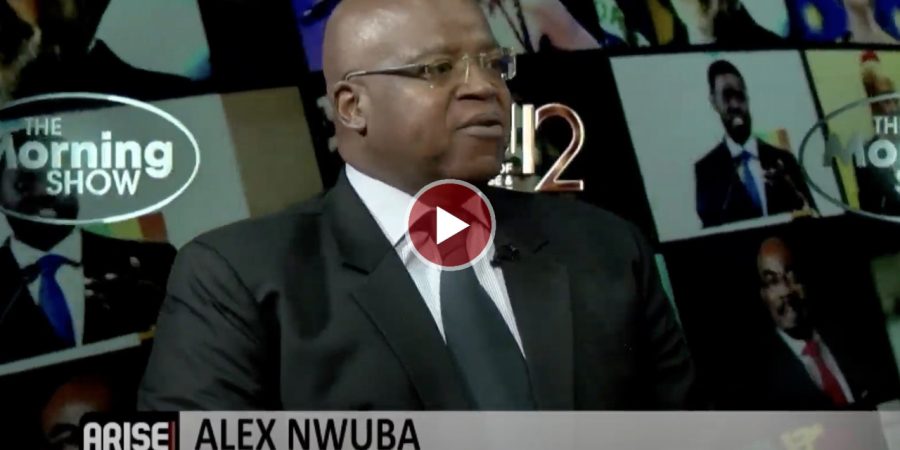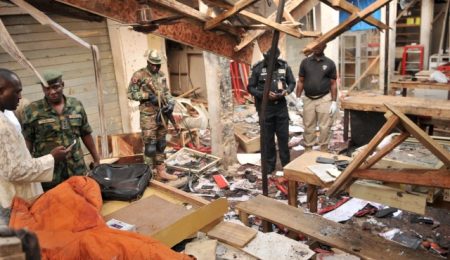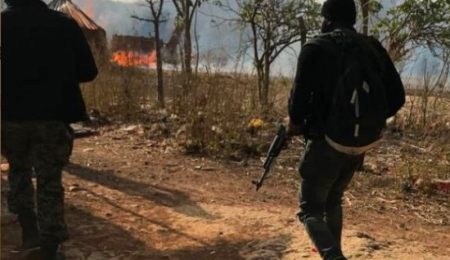Despite threats of enforcement, Aviation expert Dr. Alex Nwuba has described the federal government’s $300 helicopter landing levy as “a basic act of lawlessness,” insisting it violates international aviation regulations and lacks legal justification.
Nwuba in an interview with ARISE NEWS on Thursday stated that the fee was imposed without proper consultation and contradicts global aviation standards.
“Nigeria is a member of the International Civil Aviation Organisation, ICAO. “Under ICAO rules, you cannot impose charges that are not tied directly to services provided. You cannot charge me for A and use the money for B.”
The controversial charge, originally introduced by the Ministry of Aviation under the previous administration, mandates helicopter operators to pay $300 per landing at oil rigs, helipads, terminals, and other offshore or remote platforms. Although it was temporarily suspended in May 2024 by Aviation Minister Festus Keyamo, the levy was later reinstated via a circular signed by Akut D.S., General Manager of Air Traffic Control Operations at the Nigeria Airspace Management Agency (NAMA).
He explained that ICAO’s Document 9082 mandates that all charges in the aviation industry must follow a cost-recovery model, not profit-making. “Airports and terminal operators are not permitted to run on a profit basis,” he said. “They must only recover the cost of services provided.”
Nwuba further criticised the arbitrary nature of the $300 fee. “We’re talking about half a million naira per landing,” he said. “The question is what are you charging me that amount for?”
“The first step is to sit down with users and say, ‘these are the services I’m providing.’ That didn’t happen,” he said. “We’re talking about half a million naira per landing. What are you charging that amount for?”
He also warned that the fee sets a dangerous precedent, “If we start with $300, what stops it from going to $700? Or even a million? It’s arbitrary and unlawful.” Operators, he noted, may now seek legal recourse, “If the government forces this on the industry, we have the legal basis to go to court even international arbitration.”
Nwuba also dismissed claims that stakeholder engagement had taken place. “They probably cobbled some people together and called it stakeholder engagement. That’s not compliance with ICAO regulation,” he said.
He stressed that the broader issue reflects Nigeria’s weak service delivery culture. “Nigerians pay for many services and get nothing in return. Even my own house is flooded because gutters are clogged.”
Nwuba warned that affected operators especially those servicing oil platforms may face tough decisions between halting operations or complying with a levy he maintains is “illegal by international standards.”
“Eventually, they’ll have to go to court and demand a refund. This is just another revenue drive by a government looking for extra cash.”
He also weighed in on the rise of state-owned airlines like Ibom Air and Enugu Air, highlighting that success depends on strategic management, not state interference. “Ibom Air works because it’s state-owned but privately run. That’s the winning model. The state must not interfere,” he explained.
He cautioned against blindly replicating Ibom Air’s model without understanding its structure, “You’ll end up copying the email and pasting the wrong thing.”
Nwuba reaffirmed support for a well-structured national carrier not one that crowds out private airlines but complements domestic and long-haul services. “We need a national carrier that scales globally, not one that destroys what private airlines have already built.”
He added that government intervention in the sector should not be mistaken for funding, “They’re not funding airlines. What they’re doing is carrying out rescue missions, just like in the banking sector.”
Erizia Rubyjeana
Follow us on:



